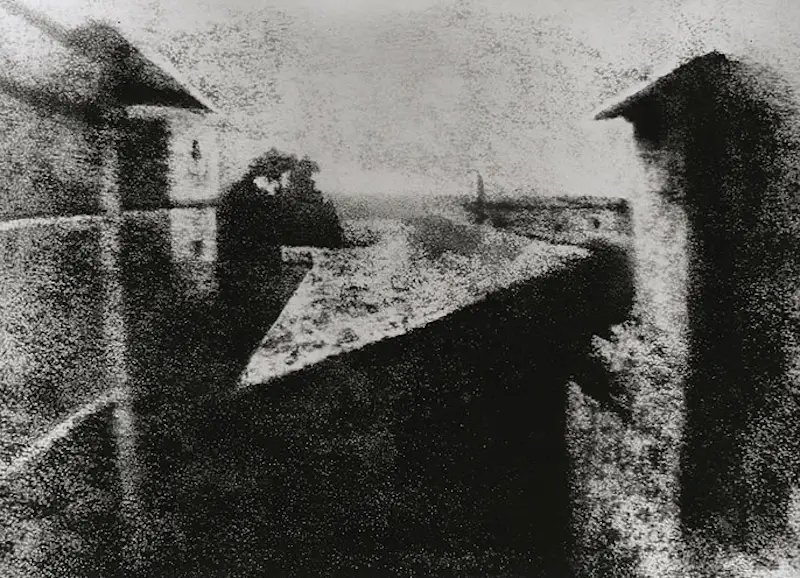The Dawn of Photography: Niépce's "View from the Window at Le Gras"
The history of photography is a fascinating journey, starting with the very first photograph ever taken, Niépce's "View from the Window at Le Gras." This groundbreaking image marked the beginning of a new era in visual storytelling. In this blog post, we'll explore the history behind this iconic image, the challenges faced by Niépce, and the significance of the photograph that changed the world.
Joseph Nicéphore Niépce was a French inventor who made significant contributions to the early development of photography. He was determined to find a way to capture and preserve images permanently, which led him to experiment with various techniques and materials.
Niépce's efforts culminated in the creation of the world's first photograph, "View from the Window at Le Gras," in 1826 or 1827. To create the image, Niépce used a technique called heliography, which involved coating a pewter plate with bitumen, a light-sensitive material. The plate was then exposed to light for several hours, capturing the scene outside his window.
The creation of "View from the Window at Le Gras" marked a milestone in human history, as it was the first time an image was captured and permanently preserved without any manual intervention. This breakthrough paved the way for the development of modern photography and the countless ways in which we use images today.
Remarkably, the original "View from the Window at Le Gras" still exists and is held in the collections of the Harry Ransom Center at the University of Texas at Austin. This one-of-a-kind object is considered a valuable and historically significant artifact, offering a tangible connection to the origins of photography.
If you are interested in learning more about the history of photography and the early pioneers like Niépce, check out the following book:
"Photography: A Cultural History" by Mary Warner Marien – This comprehensive book provides an in-depth exploration of the evolution of photography, from its earliest days to the present, highlighting the key figures and moments that have shaped the medium.
You can also watch this YouTube video to find out more.

